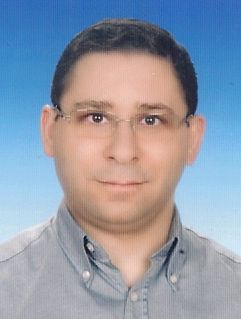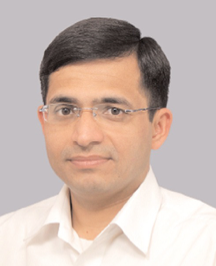14:00 – 14:10 Opening and welcome by Dr. Pelin Angin
14:10 – 14:50 Keynote speech by Professor Albert Levi
14:50 – 15:30 Session 1 (Chair: Göksel Şimşek)
- Intelligent Clustering as a Means to Improve K-Means Based Horizontal Attacks
Yauhen Varabei and Ievgen Kabin (IHP, Germany); Zoya Dyka (Innovations for High Performance Microelectronics & IHP, Germany); Dan Klann (IHP, Germany); Peter Langendoerfer (IHP Microelectronics, Germany) - Parametric Guess and Determine Attack on Stream Ciphers
Orhun Kara (Istanbul Sehir Universitesi & TUBITAK, Turkey); Ebru Küçükkubaş (İstanbul Şehir Üniversitesi & TUBITAK BILGEM, Turkey)
15:30 – 16:00 Coffee break
16:00 – 16:30 Keynote speech by Dr. Rajeev Shorey
16:30 – 17:30 Session 2 (Chair: Dr. Pelin Angin)
- ECONoMy: Ensemble Collaborative Learning Using MaskingLars Van De Kamp, Chibuike Ugwuoke and Zeki Erkin (Delft University of Technology, The Netherlands)
- Statistical Appliance Inference in the Smart Grid by Machine Learning
Zeki Bilgin (Researcher, Turkey); Emrah Tomur (Ericsson Research & Middle East Technical University, Turkey); Mehmet Akif Ersoy and Elif Ustundag Soykan (Ericsson Research, Turkey) - AndMFC: Android Malware Family Classification Framework
Sercan Turker and Ahmet B Can (Hacettepe University, Turkey)
KEYNOTES
Leveraging Internet of Things (IoT) Security via Machine Learning
Professor Albert Levi, Sabancı University, Turkey
Abstract: Internet of Things (IoT) is a system of interconnected and uniquely identified objects with computing capabilities. Today, IoT devices are used in many areas of daily life and they are used to develop smart systems. However, the fact that IoT devices are small and portable brings many challenges in terms of security. Since they have limited processing power and scarce resources, security solutions must be lightweight. In this keynote, we will discuss the results of our research aiming to develop a lightweight intrusion detection system which leverages machine learning techniques to detect IoT intrusion attacks. Utilizing the previously trained model stored in an IoT node would help the intrusion detection cost to be minimized. In that way, processing power and memory requirements of the IoT systems will be able to be met. Our study also proposes a way to allow the system to understand the location where the intrusion occurs that would be helpful for further remedies. Moreover, we study multi-attack cases and aim to classify the attack types as well. Due to the lack of attack datasets that serve to our aims in the literature, we utilized Contiki OS Cooja Simulator to generate a new one. Flooding, selective forwarding and sinkhole attacks has been implemented in the simulator to create the attack traffic. The dataset created using different topologies has been finalized after feature selection process. Different multiclass classifier models such as random forests were developed and the results show that our model could detect the type of the traffic with 99% accuracy.

Biography: Albert Levi is a professor of Computer Science and Engineering in Sabanci University, Faculty of Engineering and Natural Sciences, Istanbul, Turkey. He received Ph.D. degree in Computer Engineering from Bogazici University, Istanbul, Turkey, in 1999. Previously, he served as a visiting faculty member in the Department of Electrical and Computer Engineering, Oregon State University and as a visiting professor in the Faculty of Computer Science, Dalhousie University. His research interests include computer and network security with emphasis on mobile and wireless system security, public key infrastructures (PKI), privacy, and application layer security protocols. Dr. Levi has served in the program committees of various international conferences. He also served as general and program co-chair of ISCIS 2006, general chair of SecureComm 2008, technical program co-chair of NTMS 2009, publicity chair of GameSec 2010 and program co-chair of ISCIS 2011. He is editorial board member of The Computer Journal published by Oxford University Press and Computer Networks published by Elsevier.
Machine Learning in Cybersecurity: Current Landscape, Challenges and Opportunities
Dr. Rajeev Shorey, TCS Research & Innovation, India; IIT, India
Abstract: Researchers and practitioners today are exploring the applicability of machine learning in almost every area of engineering. Security Engineering and Cybersecurity are no exceptions. In the last few years, we have seen an exponential increase in the number of publications and technical reports from both academia and industry on the effectiveness of AI and machine learning for cybersecurity. In this talk, we address the intersection of two areas of great interest to the technical community — machine learning and cybersecurity. More specifically, we identify and discuss major challenges in applying machine learning in wireless systems such as, for example, vehicular networks and ensuring security of such complex networks. We believe that future Automotive and Autonomous systems such as Smart Vehicles will be greatly impacted by advances in machine learning and cybersecurity.

Biography: Dr. Rajeev Shorey is a Principal Scientist with Tata Consultancy Services (TCS) Research and Innovation, India. Rajeev serves as an adjunct faculty in the Computer Science & Engineering department at the Indian Institute of Technology, New Delhi, India. Dr. Shorey received his Ph.D. and M.S. (Engg) in Electrical Communication Engineering from the Indian Institute of Science (IISc), Bangalore, India in 1997 and 1991 respectively. He received his B.E degree in Computer Science and Engineering from IISc, Bangalore in 1987. Dr. Shorey’s career spans several reputed research labs – General Motors (GM) India Science Laboratory (ISL), IBM India Research Laboratory and SASKEN Technologies. Dr. Shorey served as the first President of NIIT University from 2009 to 2013 before joining the TCS Research Labs in 2014. Dr. Shorey’s work has resulted in more than 60 publications in international journals and conferences and several US patents, all in the area of wireless and wired networks. He has 13 issued US patents and several pending US patents to his credit. Dr. Shorey serves on the editorial boards of two of the reputed journals in the area – the IEEE Internet of Things Journal and Springer’s Journal of Wireless Networks. His areas of interest are Wireless Networks including 5G Networks, Telematics, IoT, Industrial IoT, IoT Security and Automotive Networks, including Automotive Cybersecurity. For his contributions in the area of Communication Networks, Dr. Shorey was elected a Fellow of the Indian National Academy of Engineering in 2007. Dr. Shorey was recognized by ACM as a Distinguished Scientist in December 2014. He is a Fellow of the Institution of Electronics and Telecommunication Engineers, India and a Senior Member of IEEE.